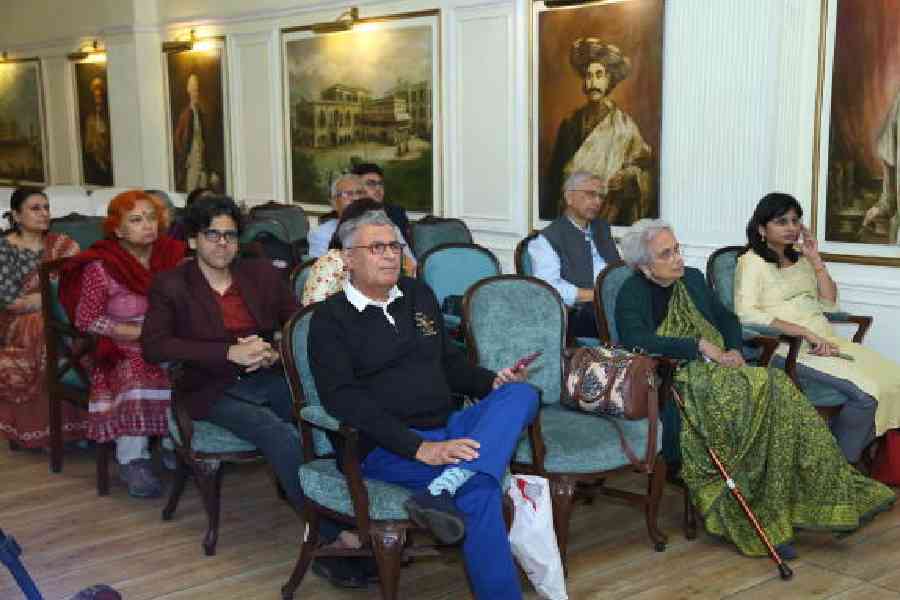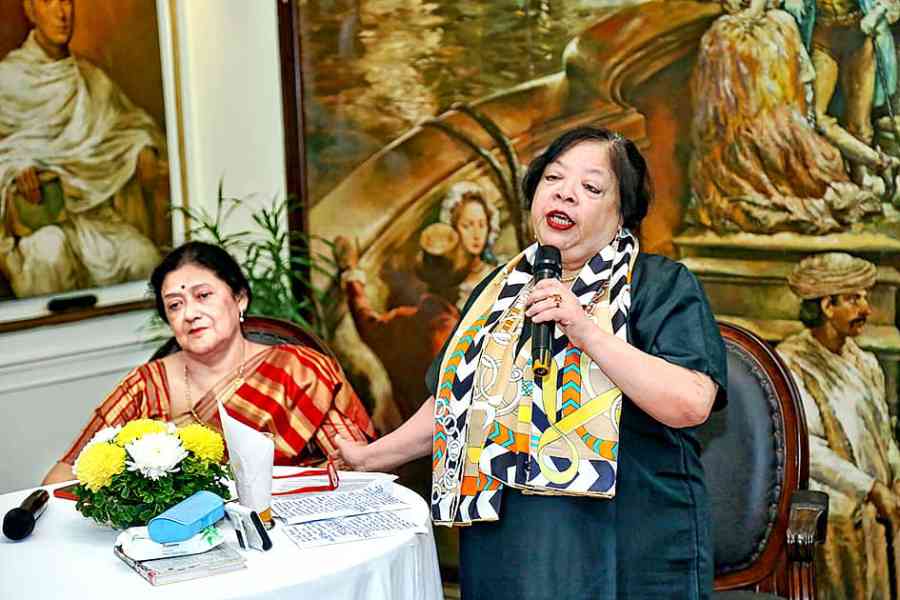The Bengal Club Book Club’s last discussion of February, the month that celebrates the emotion of love, chronicled the strings of Aisha Sarwari’s Heart Tantrums. The Pakistani author’s memoir, which fills the reader’s heart with intense anger, sadness, and at the same time even lauds her level of intolerance, exuded a mixed reaction from the club members who had gathered to discuss the complex book. With a subtitle, A Feminist’s Memoir of Misogyny and Marriage, the book presents graphic details of domestic violence, Sarwari’s dilemma of choosing between the good and the bad, and the blurring lines between the two, the patriarchal pressure and her decision of staying in a violence-ridden marriage.
“This is not just a book about domestic violence but about what women all over the world suffer. This is also not culture-specific,” started off Professor Julie Banerjee Mehta, introducing the book and the author who wears the corporate hat and is a women’s rights activist. Book club member Chaitali Maitra, who agreeed with Mehta’s description of the memoir as very different, shared her amazement while reading the book. She said: “For the first 100 pages I was clearly annoyed because a woman was suffering. When I got into the thick of the book I realised that it is not just the man and the wife but the tumour was also a character. The tumour was both qualifying and disqualifying the relationship between Yasser Latif Hamdani and the author. Gradually, I felt that there were so many other presence in the book, especially the contrast between Pakistan and America. I also felt that apart from the violence there are other emotional vacuum which gives to her memoir a filial and a conjugal perspective.”

Members and guests listened in rapt attention
The book also talks about mental health and Dr Sandip Chatterjee raised a few relevant points to understand the psyche of the book and the author better. The neurosurgeon started off by referring to Einstein’s theory of relativity: “According to the theory, there are events that occur on the surface of the planet that are viewed by two individuals who have completely different interpretations of the same event and nowhere it is more subtly demonstrated than in the relationship of Aisha with her husband.” Coming to the brain tumour aspect of the memoir, he added: “Was the brain tumour the sub strait for the violent behaviour or was it the subterfuge of the behaviour? We know that brain tumours can affect the behaviour but the sort of behaviour we hear in the book of extreme violence is difficult to justify or blame on the brain tumour.”
Dr Chatterjee’s honest and rational perspective of the book resonated with the audience who did not hesitate to ask difficult questions to the author who joined over Zoom. Sarwari patiently answered questions on the source of her unimaginable tolerance, her struggle and more. “The book is very honest in how much sanity and humanity I lost. There’s a big difference between compassion and self-harm and I think I stayed in self-harm for a very long time as everyone around me told me that it would be the honourable thing to do and I think that I would like to challenge.”
